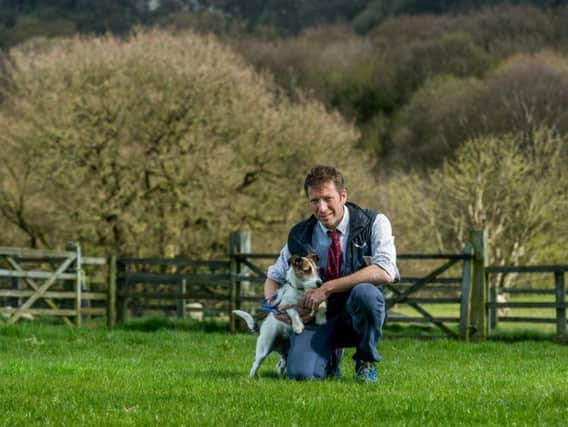Yorkshire vet Julian Norton and the case of the Shih Tzu with imperfect zen
This article contains affiliate links. We may earn a small commission on items purchased through this article, but that does not affect our editorial judgement.


The gentle and laid back nature of these dogs lends itself to guarding a Buddhist monastery and, in another life, Benji would have been the perfect companion to the Dalai Lama.
“He’s just not really doing anything,” declared his owner, Mr Jenkins, as Benji ambled into my consulting room.
Advertisement
Hide AdAdvertisement
Hide Ad“He’s stopped eating, and when we are about to go for a walk he looks out of the door, but then he just stands there. If he does come outside then once he’s done his poo, he won’t go any further.”
Just as I was about to lift the little dog up onto the table to start my examination, Mrs Jenkins appeared. She had not got as far as the door to the room by the time the description of his ailments had begun, although she had heard the start of the conversation.
“That’s not true, Roger. He does eat,” she protested. “He ate his breakfast this morning and he ate it all. And he does do things. He looks out of the window and he barked at the postman this morning.”
MORE JULIAN: Yorkshire vet Julian Norton teams up with wife Anne for one of his most challenging operations in surgeryI knew where this might end up – I have been in the middle of various marital disputes over the years, about what the dog or cat might or might not be doing. I have learnt that it is better to try to stay impartial.
Advertisement
Hide AdAdvertisement
Hide AdHowever, Mr and Mrs Jenkins – Enid and Roger – were clearly great companions and, once I had started examining the little dog, the discussion quickly moved on to different matters, mainly how difficult it had been for Roger to find sufficient daffodils for the arrangements Enid was hoping to make for her local church at the weekend. The disagreement over Benji’s state of inertia or otherwise had passed, and I was relieved.
I was also relieved when I placed my stethoscope on to the side of Benji’s chest. There was a loud heart murmur – a whooshing noise every time his heart contracted. This explained the Shih Tzu’s lethargy. A murmur like this is caused by a leaking heart valve. Instead of closing snugly to prevent backflow when the heart muscle contracts, a leaking valve means some blood goes backwards. Just like a failing plumbing system, this means the heart is not so efficient – there is a build-up of pressure at the point of delivery of blood to the heart, and a reduction in output. This was leaving Benji tired.
Happily, heart medication would help and his signs would be very likely to resolve. Roger and Enid’s biggest problem now became the daffodils.
Later that day I had another slow-moving patient. His name was ‘Ayrton’, after the famous Formula 1 racing driver. The name was obviously ironic, as Ayrton was a tortoise. Unlike his namesake, this creature would never be quick, but today he was especially slow, as he had just emerged from hibernation in the fridge.
Advertisement
Hide AdAdvertisement
Hide Ad“I wanted to have him checked over, but I’ve not been able to find a tortoise expert until now.” I felt the weight of expectation. I tried to explain that, although I enjoyed looking after tortoises, I did not class myself as an expert. That said, I did know what was required to make sure Ayrton woke up properly from his winter sleep.
I took the required measurements and weighed him – there is a useful graph for the Hermann tortoise which confirms that the animal is of the correct weight for its size. He seemed healthy as I examined him as much as it was possible, given that 90 per cent of his body was inside a shell!
The Yorkshire Vet returns to Channel 5 on Tuesday at 8pm.